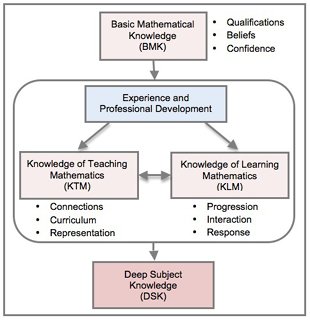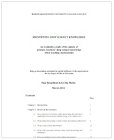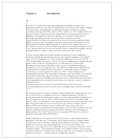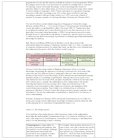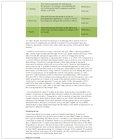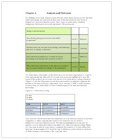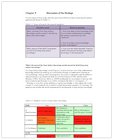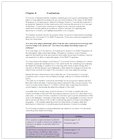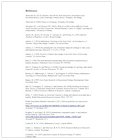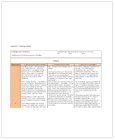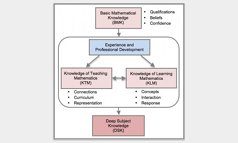Maths subject knowledge is an issue in primary schools and sometimes teachers, especially non-specialists, can lack confidence in teaching mathematics.
My MA study, a small-scale, evaluative case study of three MaST teachers, provided evidence that deep subject knowledge is likely to be developed through teaching experience, reflection, self-research and continuing professional development.
The dissertation is available below to download, with each section a separate pdf document.
Do contact me if you wish to discuss this further or use any of the observation sheets.
Abstract
The focus of this study is to identify the characteristics of primary teachers’ subject knowledge of mathematics and to ascertain the nature of deep subject knowledge. A weakness in subject knowledge is an issue in primary schools, particularly in the teaching of mathematics. The Williams Report (2008) based key recommendations around this concern and in response a Masters-level Maths Specialist Teachers Programme (MaST) was introduced nationally in 2010. Selected teachers train to become specialists in primary mathematics teaching, with a stated aim of the MaST programme to develop and secure deep subject knowledge in its participants.
Following a review of literature and analysis of the characteristics of subject knowledge, a Deep Subject Knowledge model was designed and used as an analytical framework to collect evidence of subject knowledge. Data was gathered within lesson observations and through interviews from a sample group of three teachers on the MaST Programme. The four levels of Kirkpatrick’s layered evaluation model were then used to evaluate the impact of the MaST Programme on the teachers’ subject knowledge, with the results organised as three case studies.
An outcome of the study is the development of a framework based upon the Deep Subject Knowledge model that can now be used to identify and analyse the subject knowledge of teachers during classroom observation or interview. Using this framework, the study found evidence that deep subject knowledge is more likely to be developed through teaching experience, self-research and continuing professional development than through a high academic qualification in mathematics. The MaST Programme, as an example of a continuing professional development programme, was found to have had a positive impact on the deep subject knowledge of the participants. However, there was evidence of some limitations within the programme, particularly in the delivery of mathematics content beyond the primary phase. The study recommends that support should be given to teachers in the day-to-day management of a connectionist approach to teaching mathematics, and that any mathematics training given to primary teachers that is beyond the primary phase needs explicit connections made to the primary curriculum.

